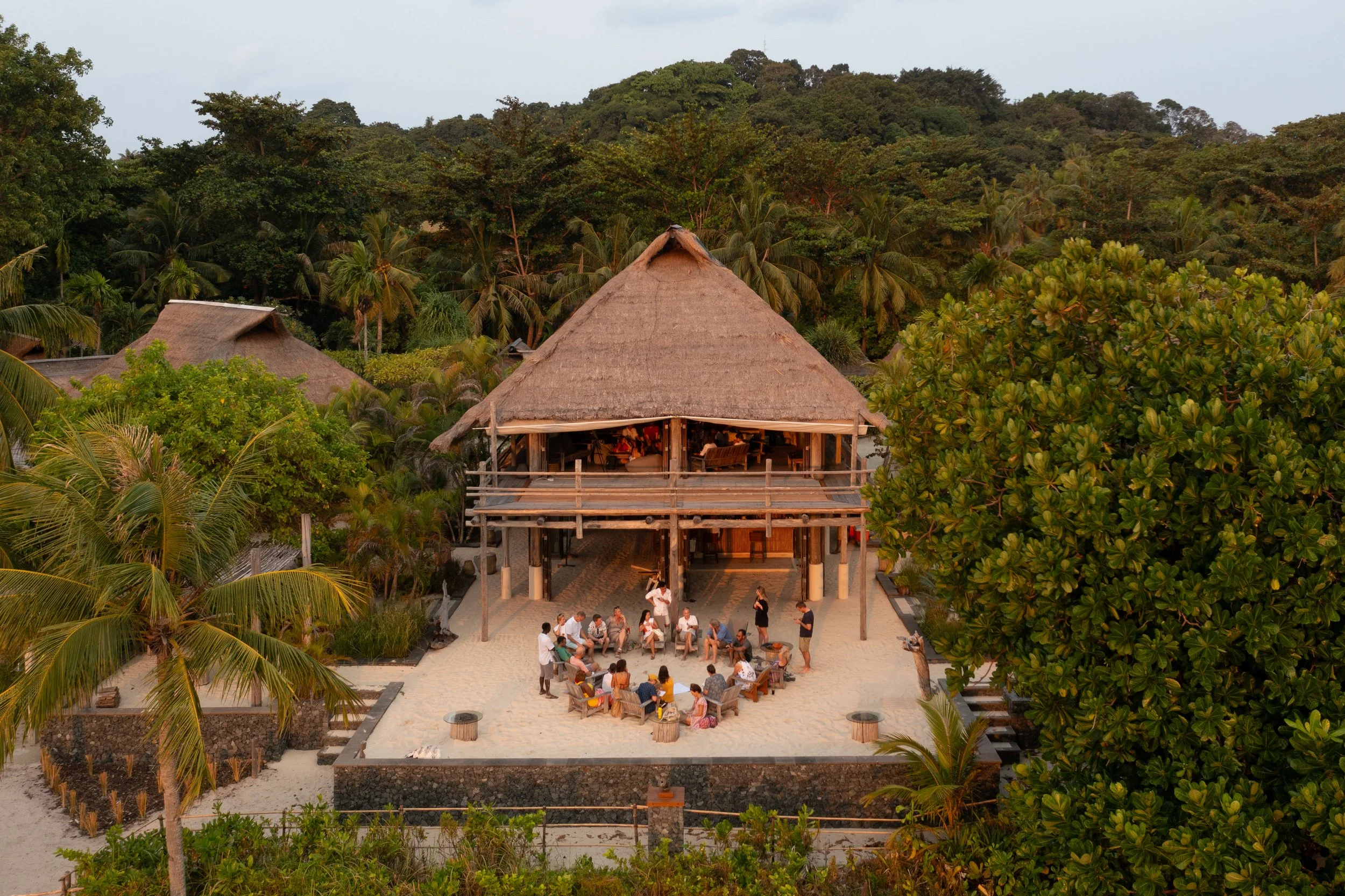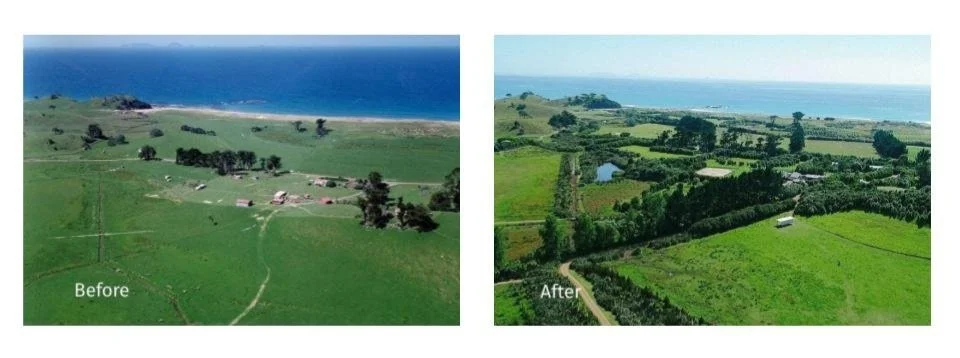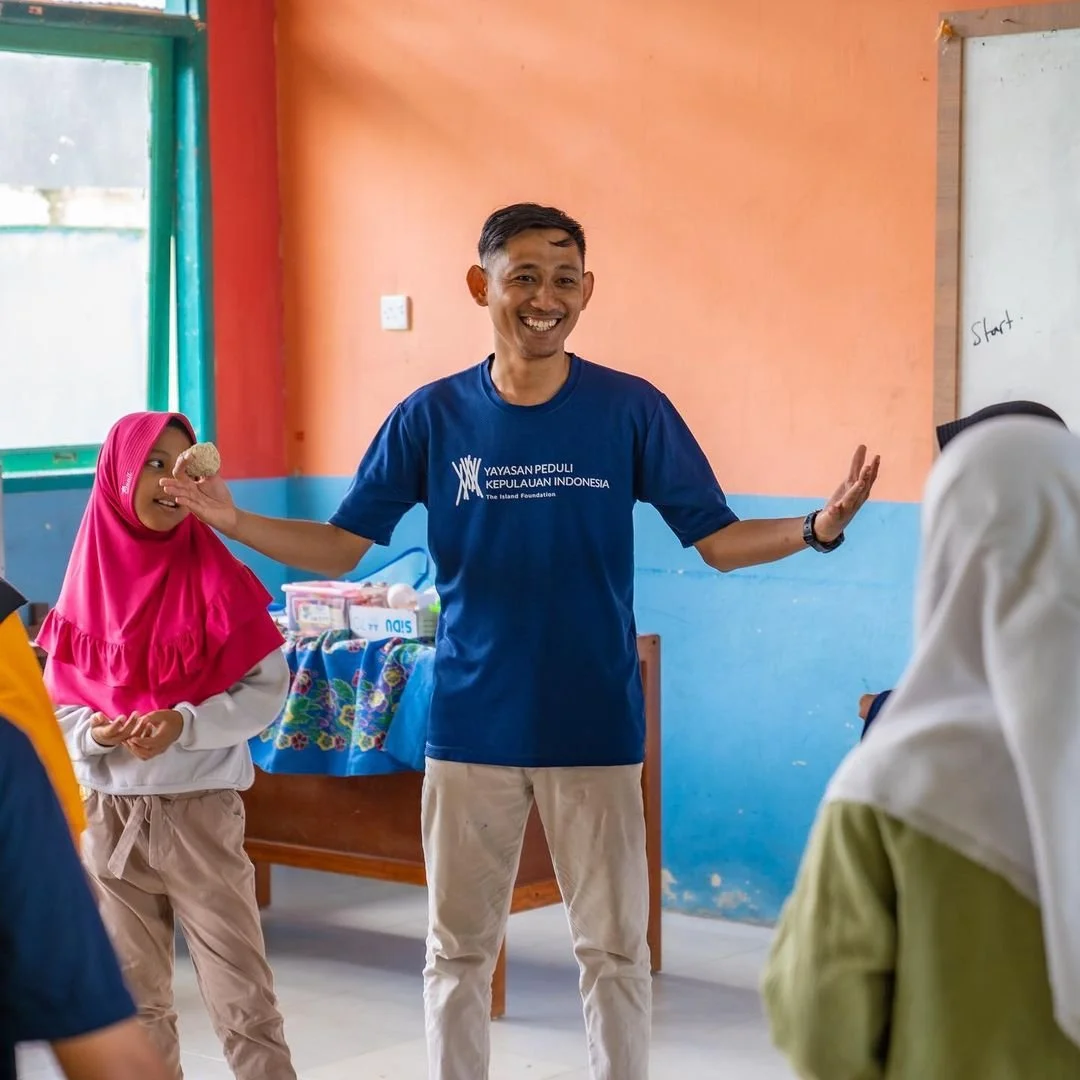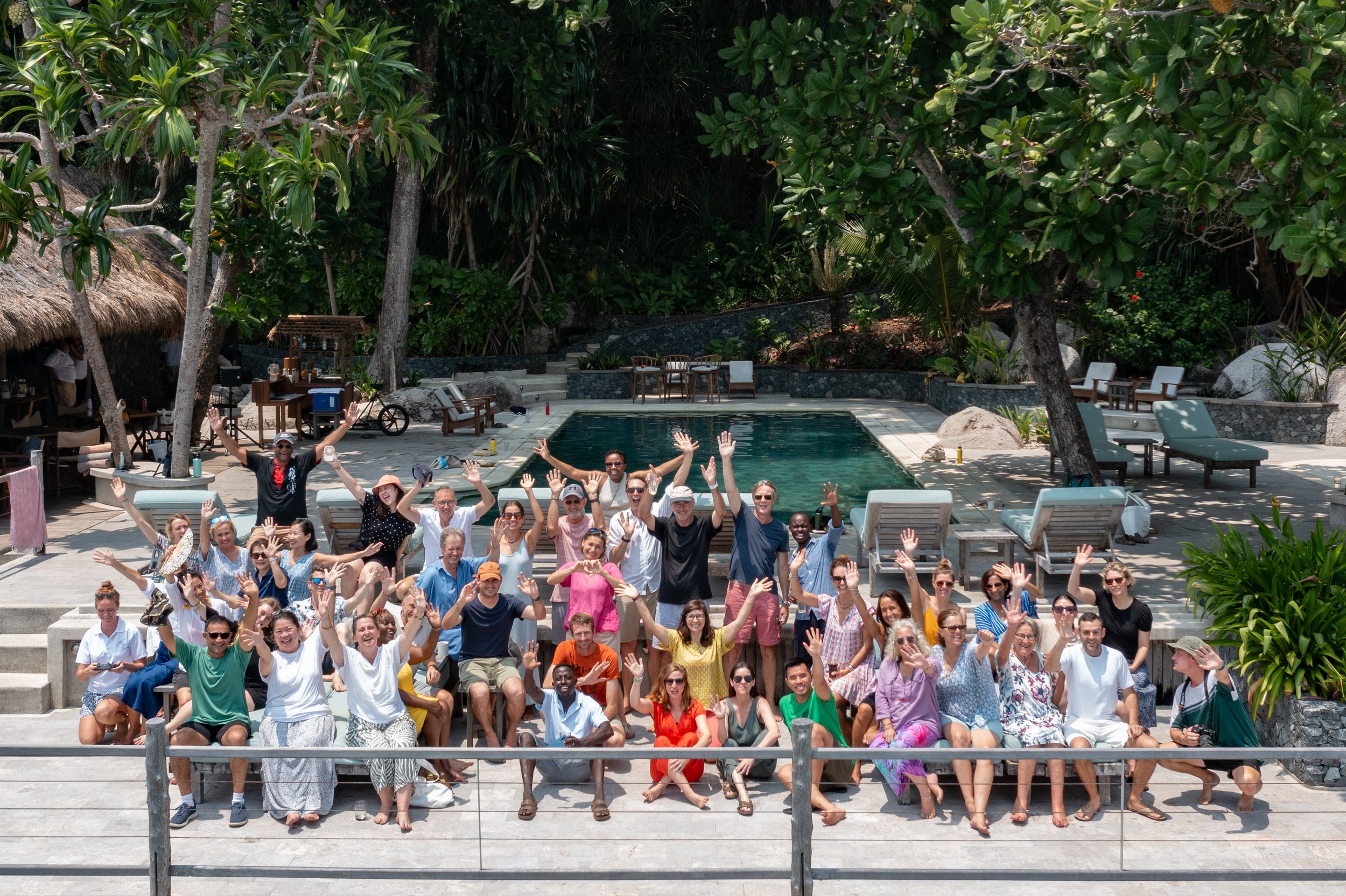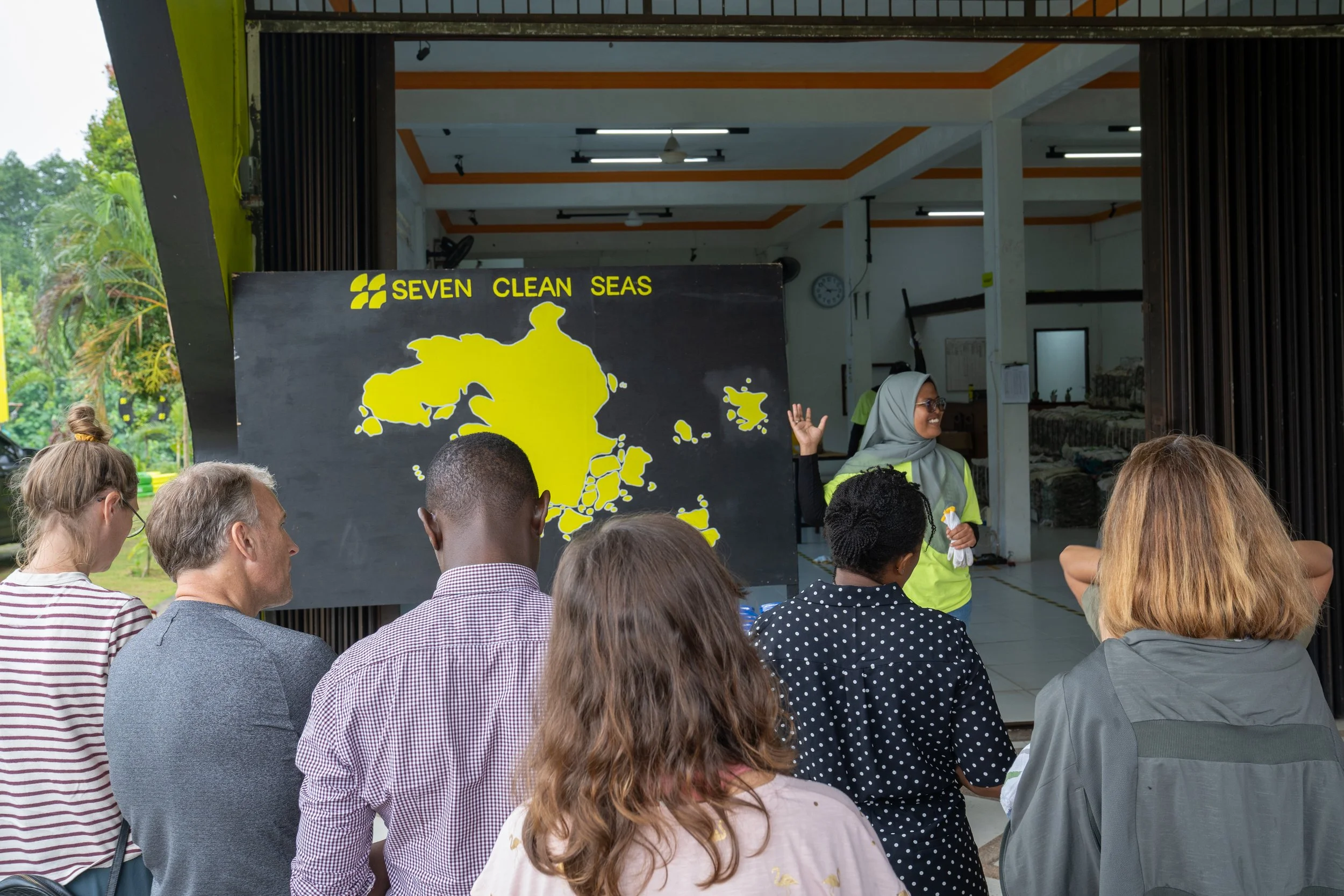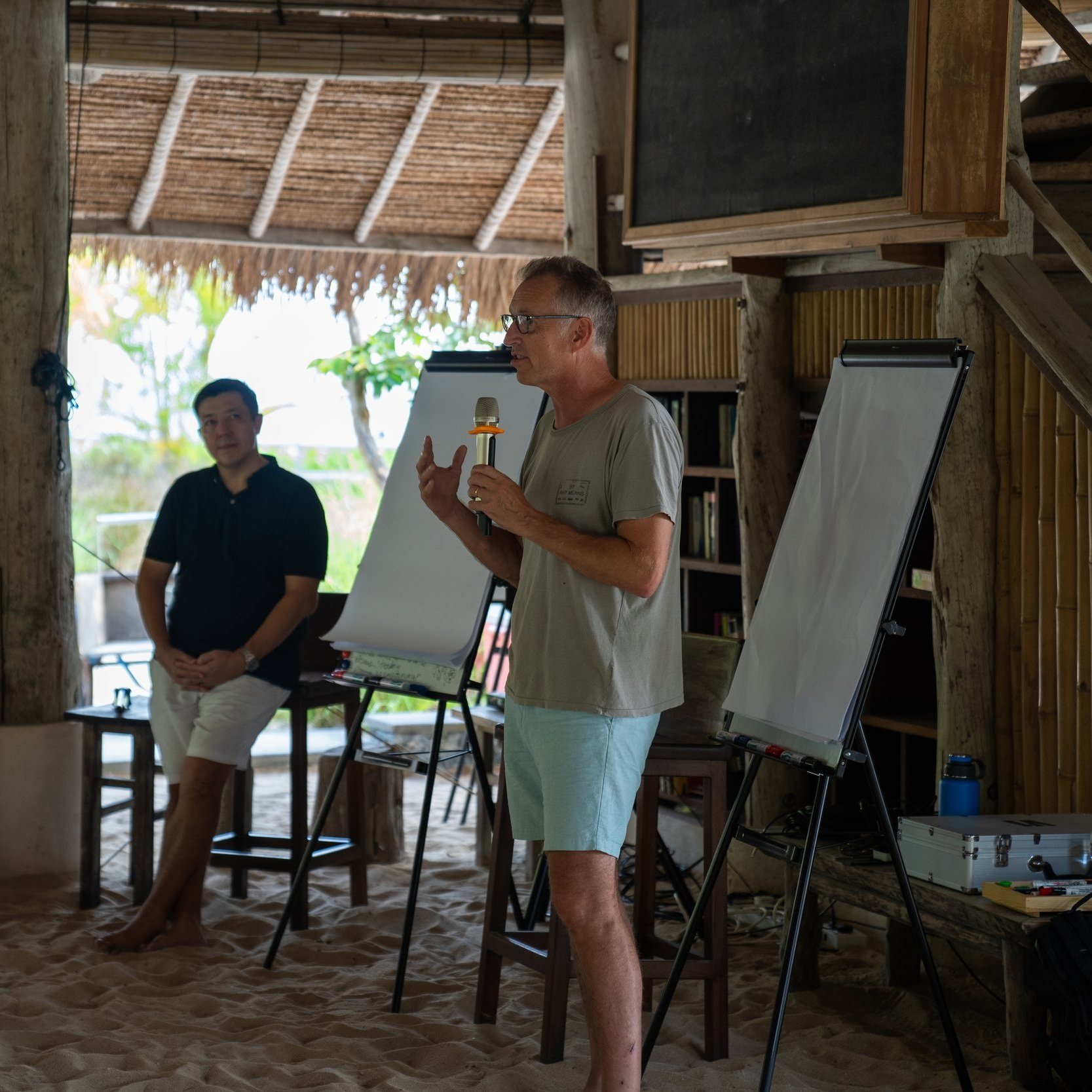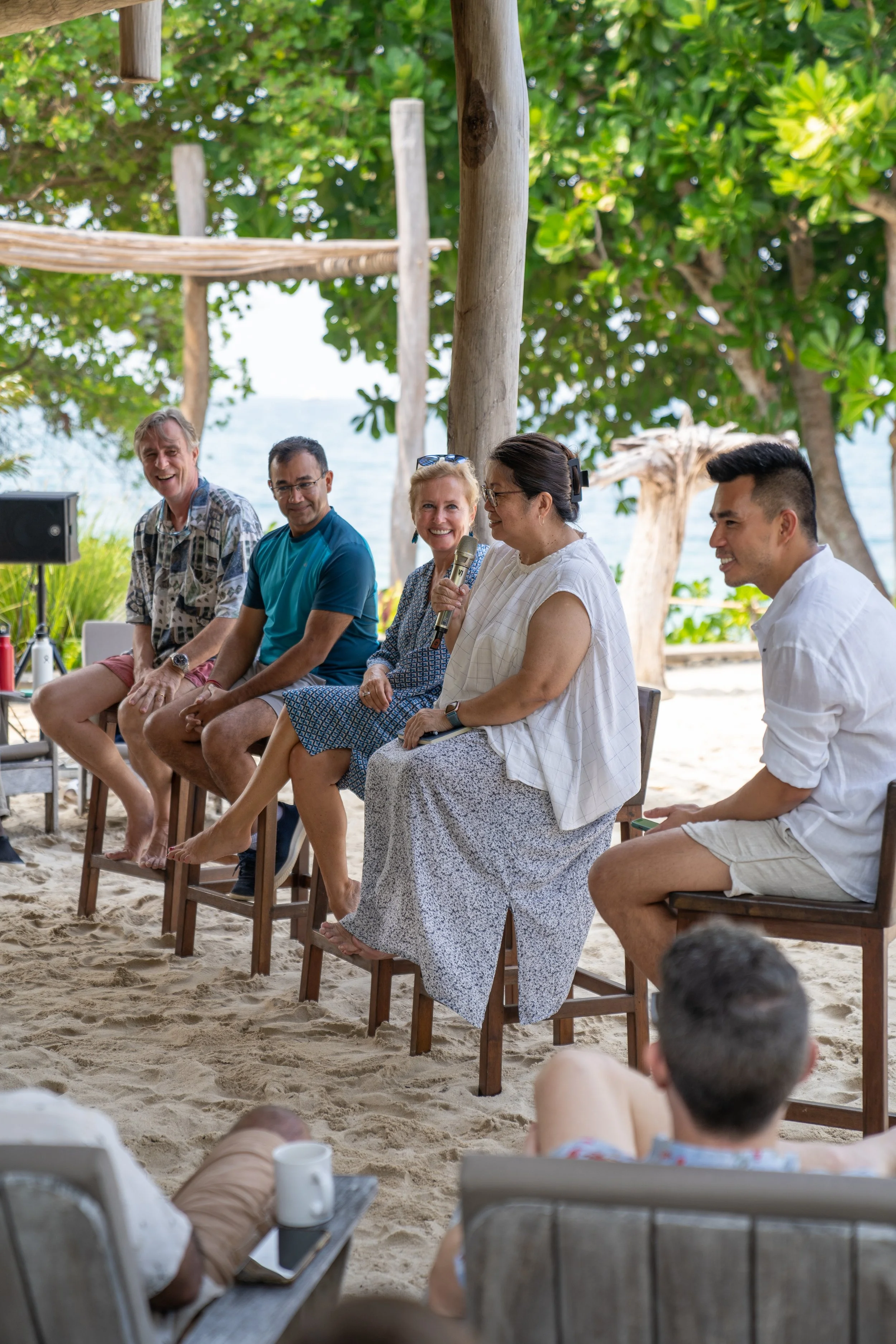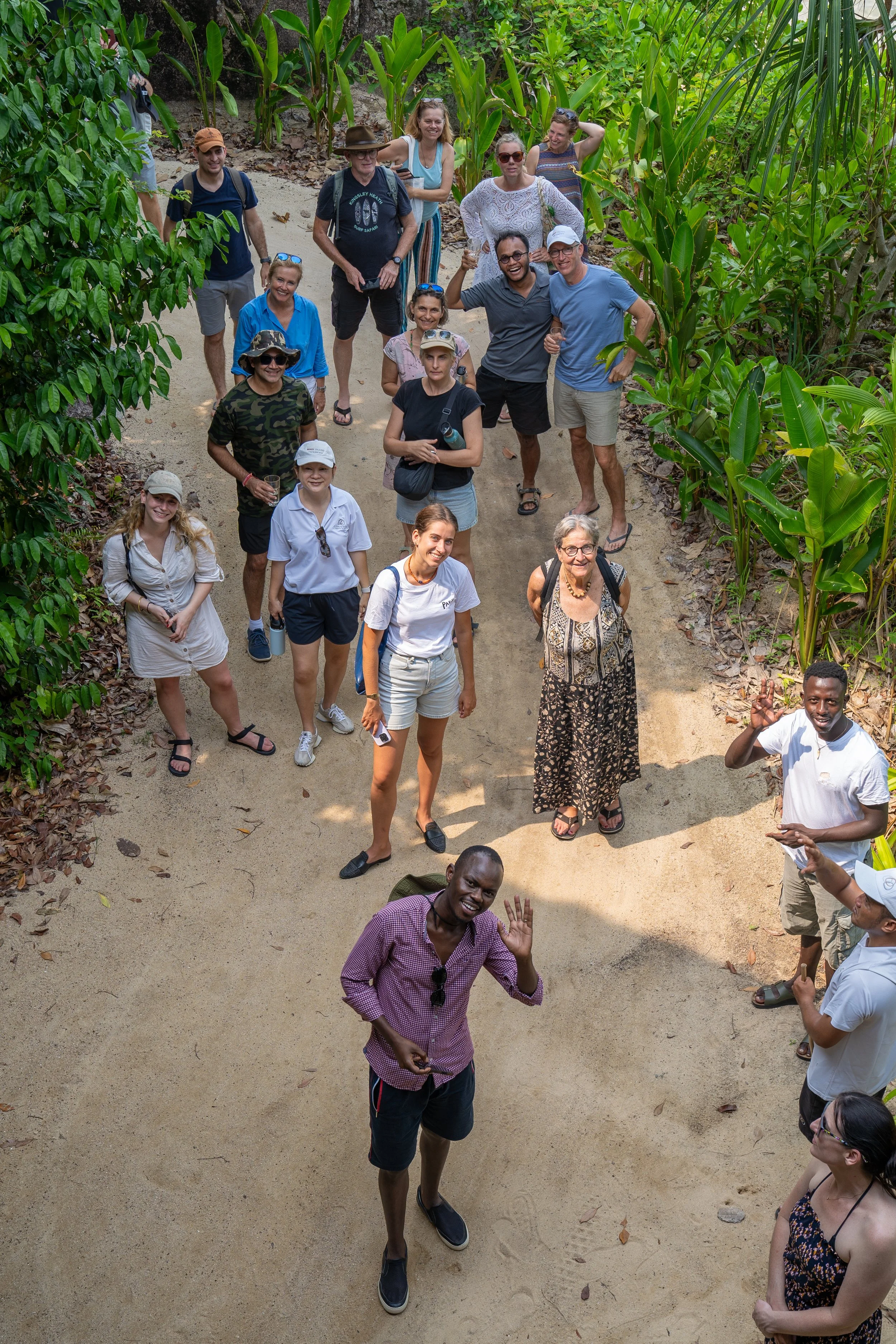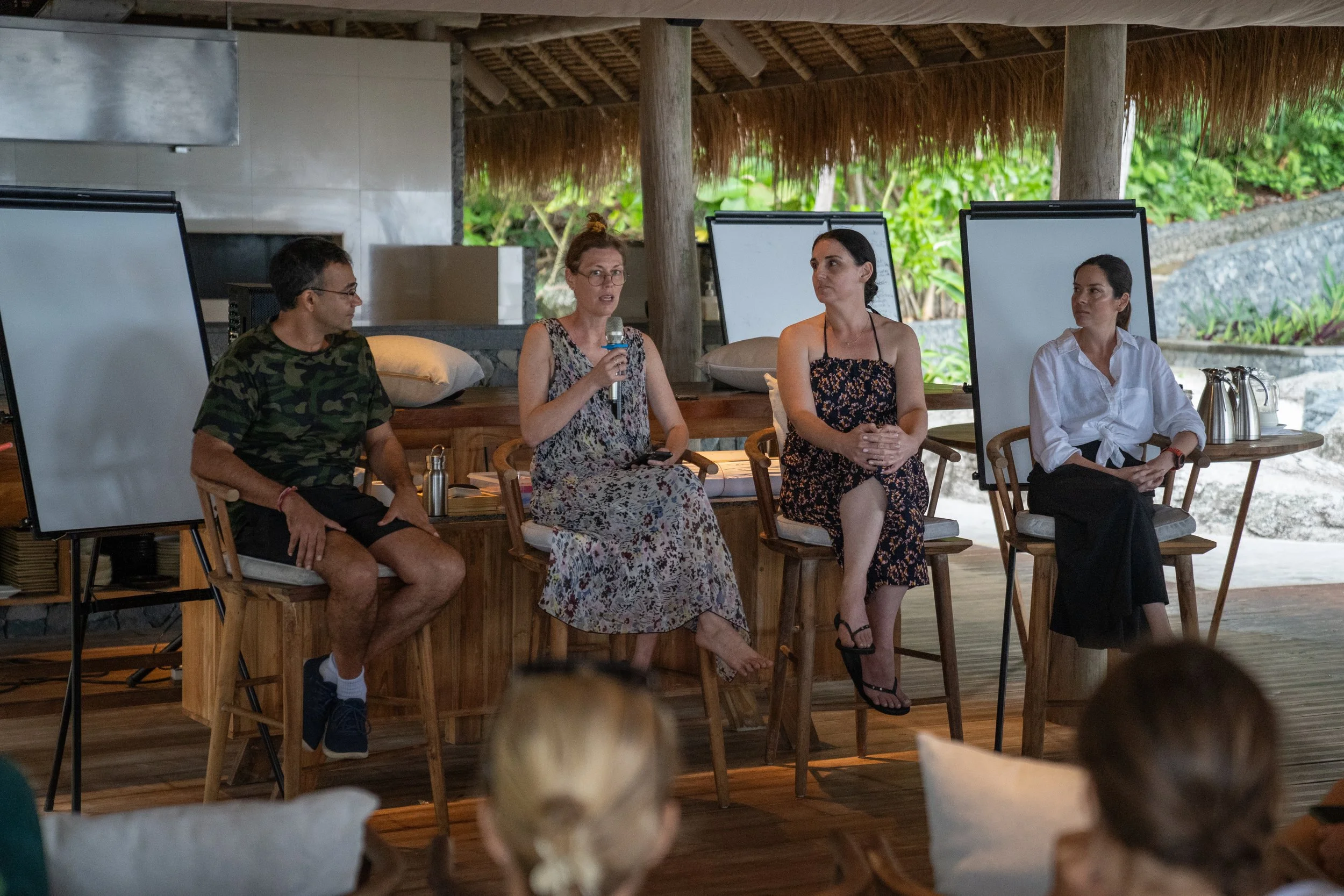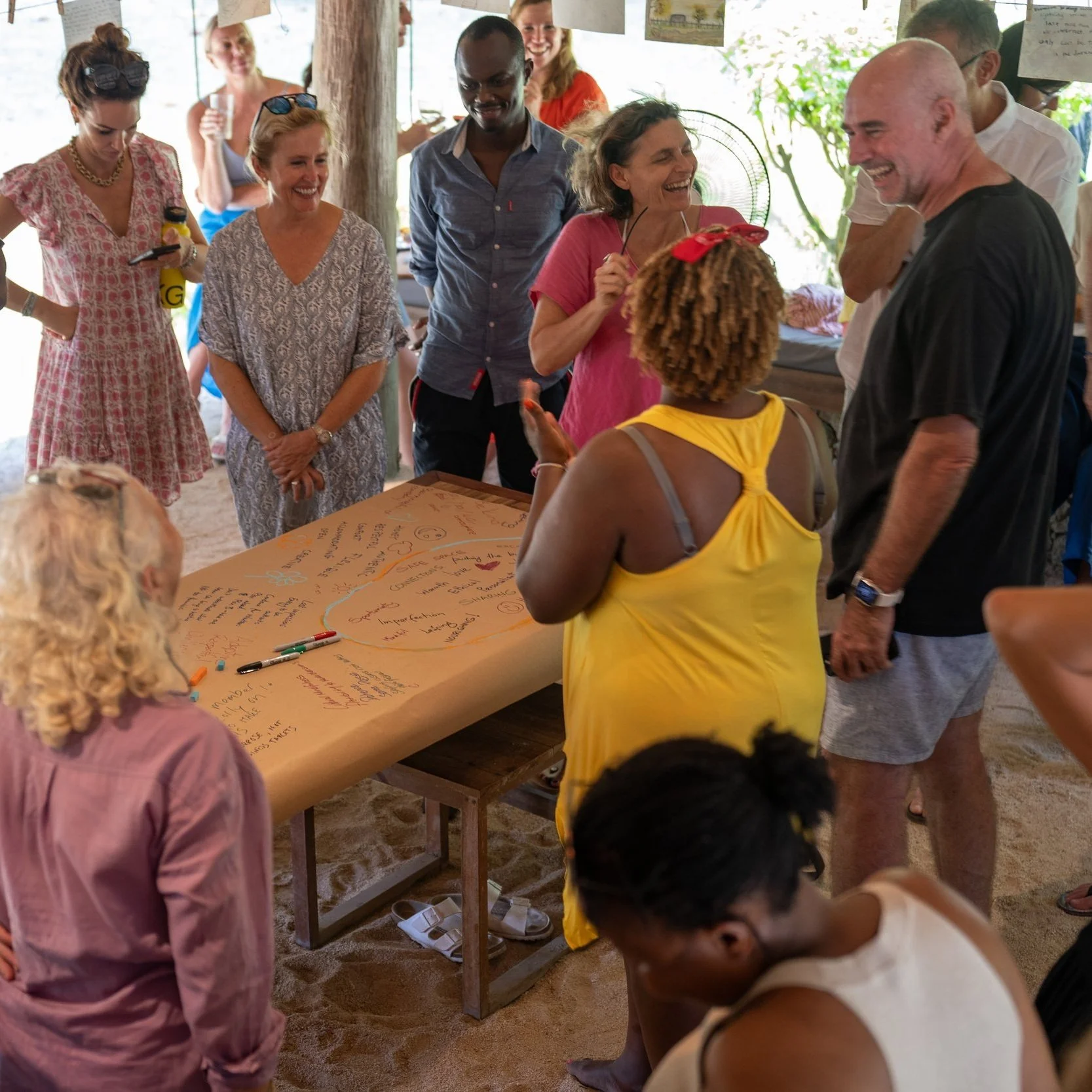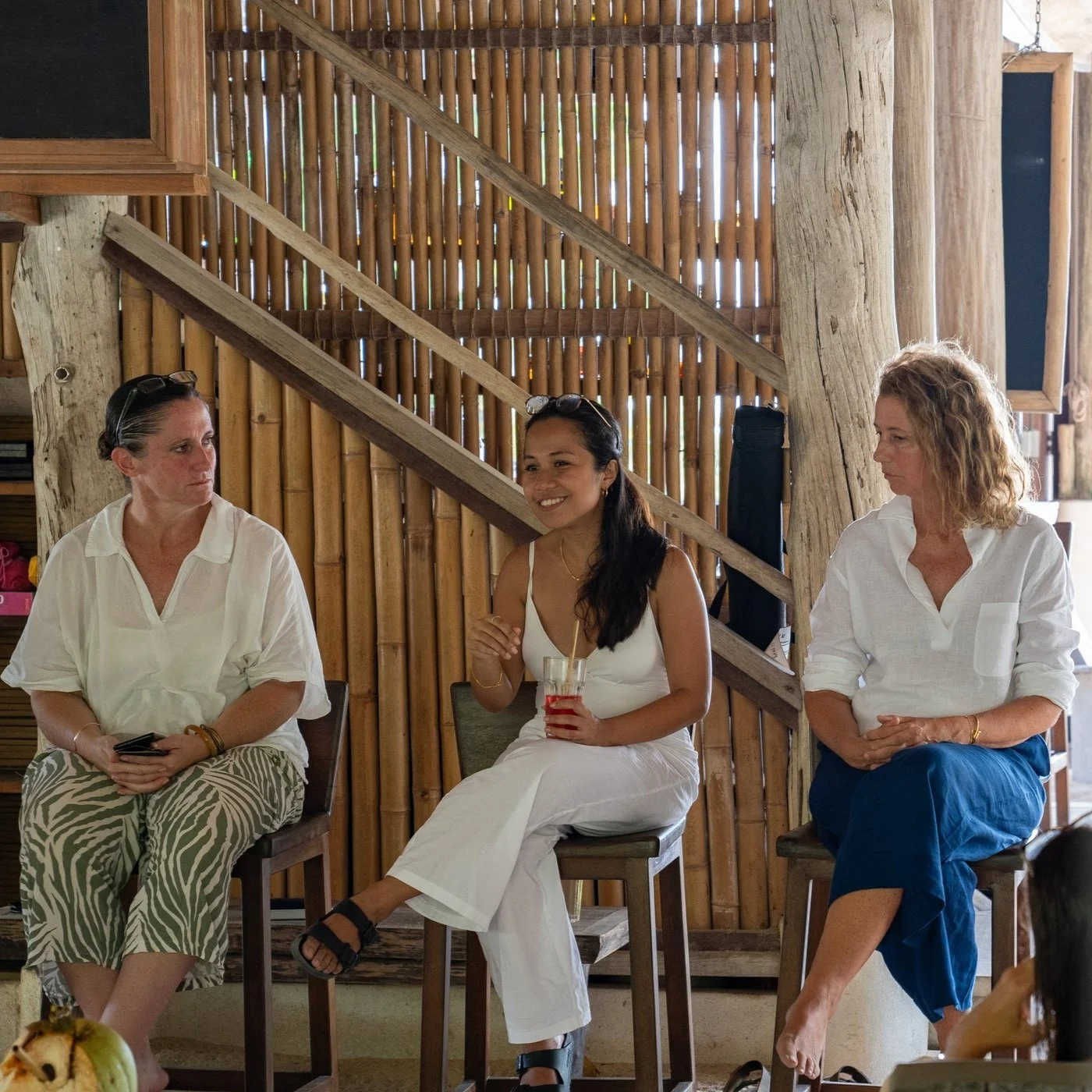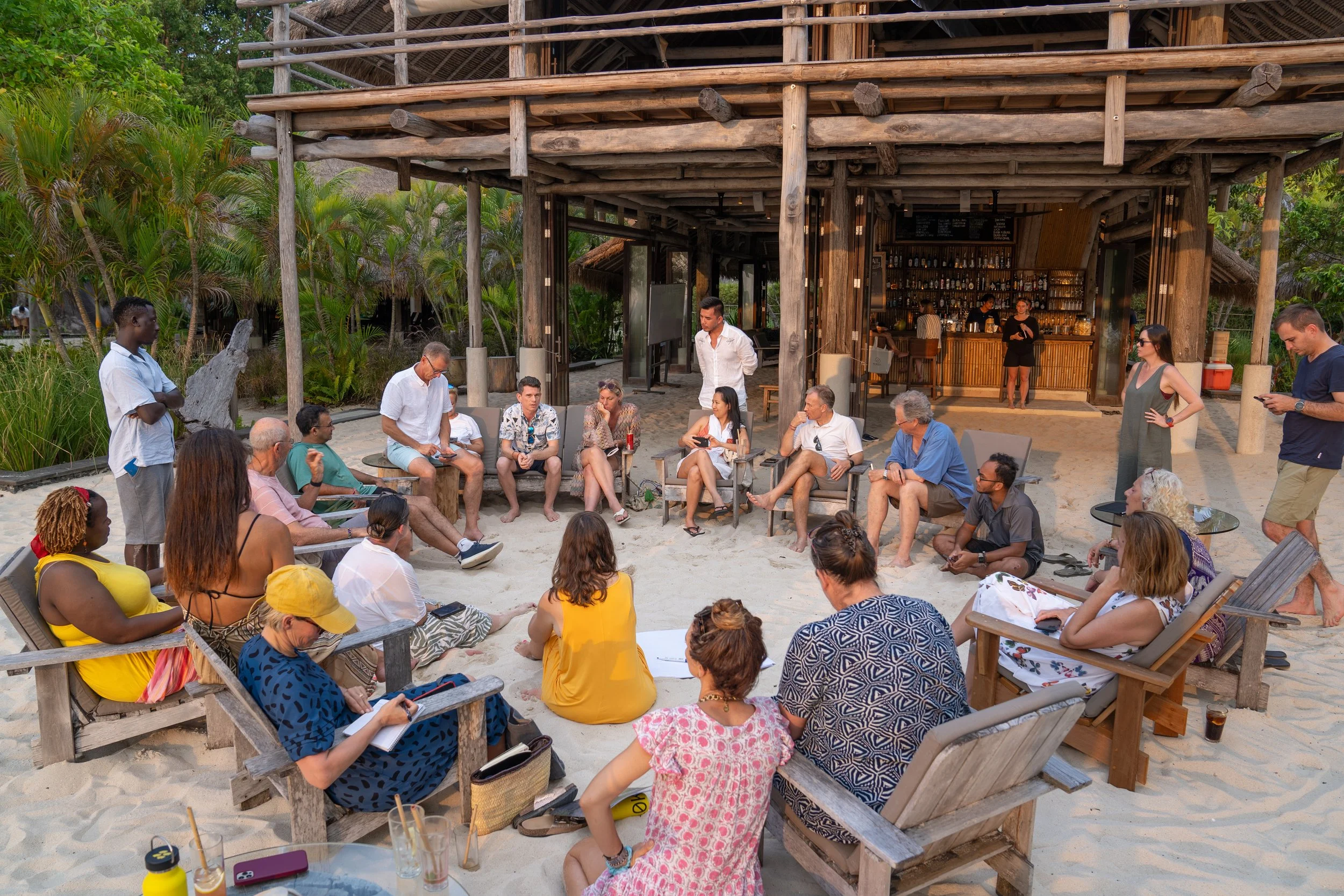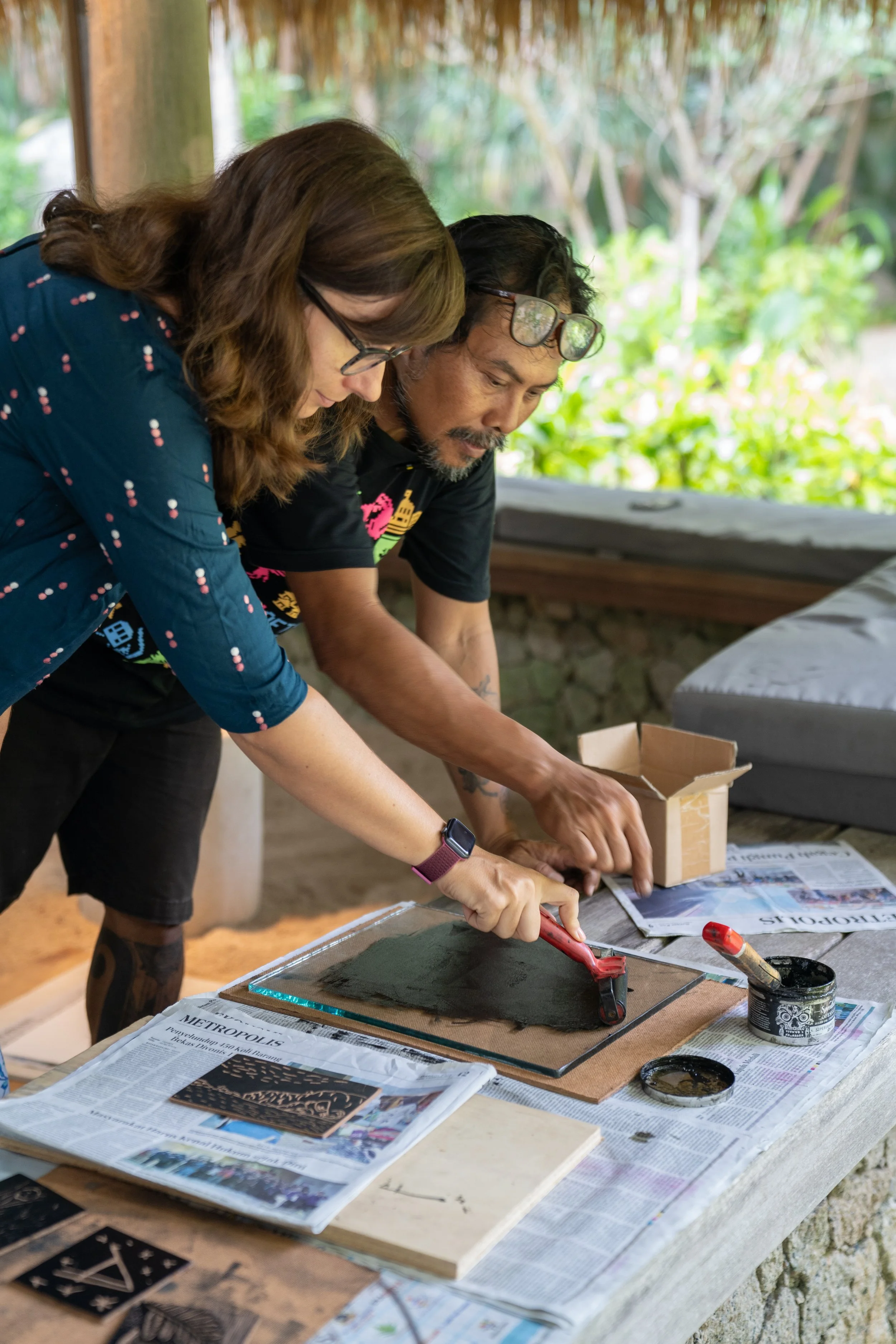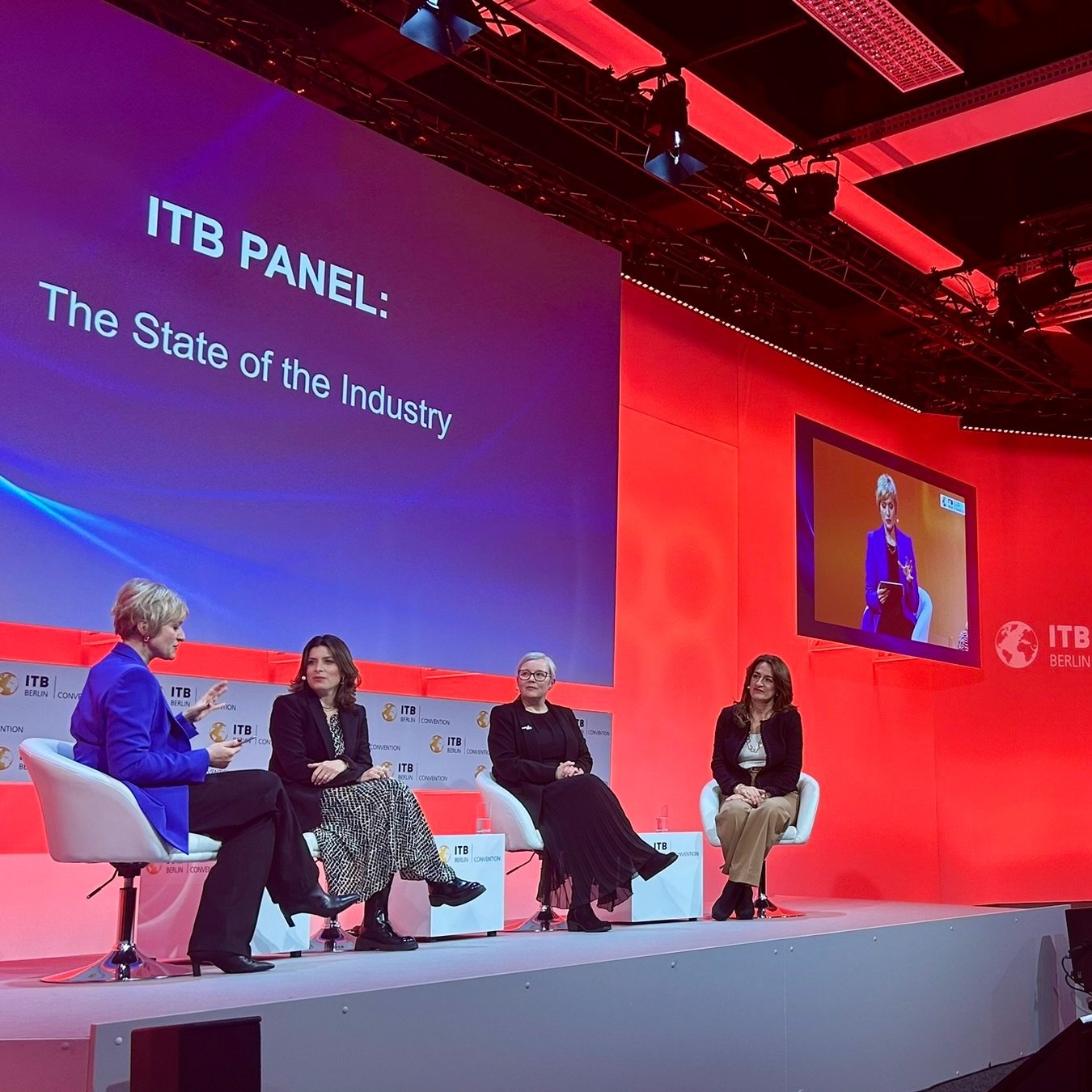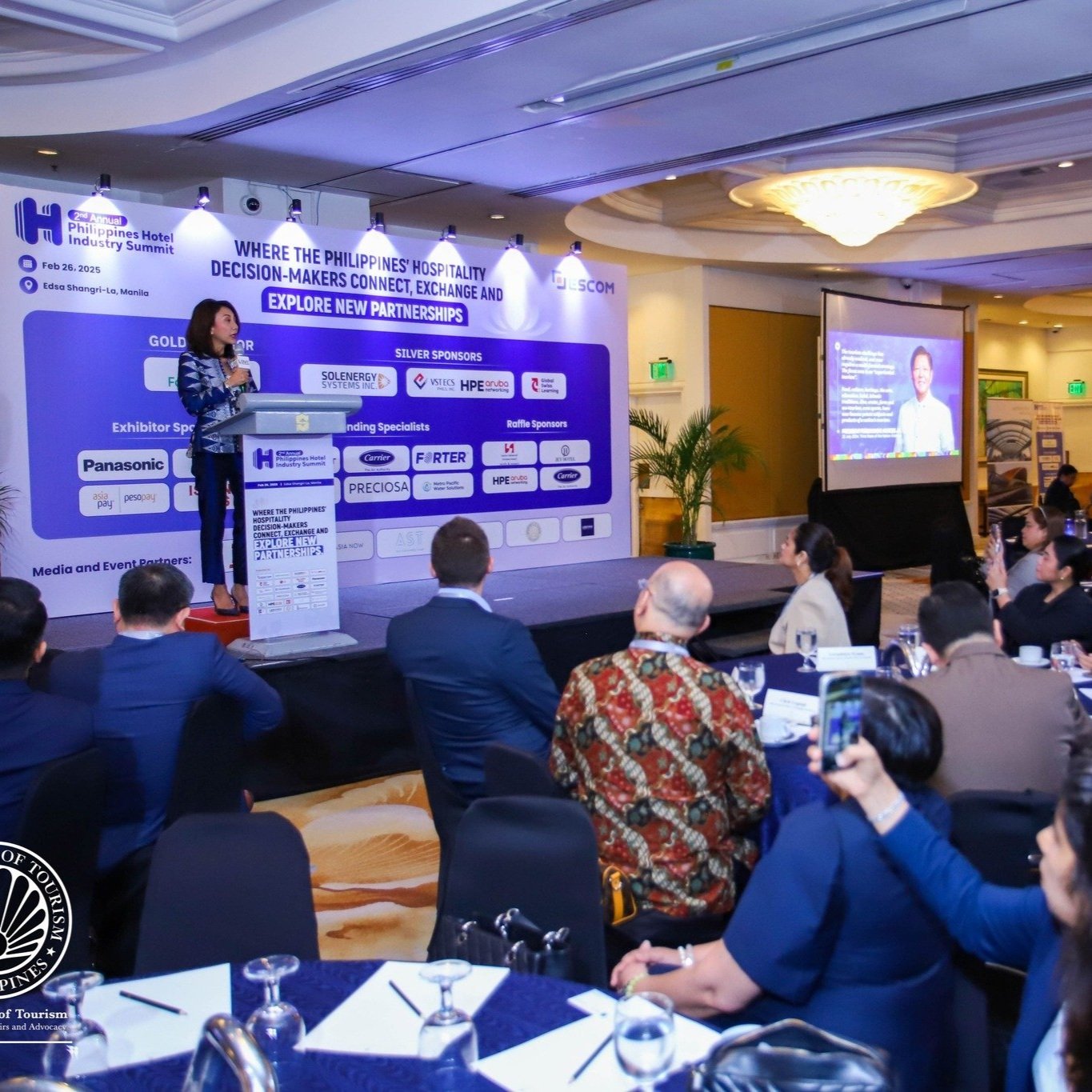Five Key Insights from the World’s Leading Responsible Tourism Experts
The Long Run members and guests at Nikoi Island. Photo by: Leanna Crowley
Every year, The Long Run, the premier global membership community of conservation-led tourism businesses, comes together to celebrate its mission to safeguard ecosystems for the well-being of all.
The 13th Members’ Annual Meeting, hosted by Nikoi Island and Cempedak Island in Bintan, Indonesia, was a testament to the commitment of over 50 members and guests to create business resilience through diversification, collaboration, and long-term planning.
The Asia Sustainable Travel Briefing team had the privilege of being part of this 4-day value-packed meeting, which offered valuable insights into the ever-evolving landscape of sustainable travel.
In this article, we will deep dive into the top five key takeaways from The Long Run Annual Member Meeting 2023, which provides the tourism and hospitality sector with important strategies and actionable steps to drive excellence in sustainable tourism.
1. Aim for Biodiversity Positivity
In recent years, the sustainability movement has called on businesses and governments to adopt a carbon-neutral or net-zero strategy.
While carbon neutrality focuses on offsetting environmental degradation, biodiversity positivity or nature positivity broadens the perspective. This means not only preserving natural habitats but actively contributing to their restoration and enhancement. There are other similar terms such as regeneration, revitalization, or rewilding to describe this philosophy.
Many members of The Long Run Global Ecosphere Retreats, including Tahi, Cottar’s 1920s Safari Camps, and Nikoi Island are prime examples of conservation-led businesses that are centered on extensive biodiversity restoration, indigenous planting, and proactive community engagement and investment.
For example, biodiversity restoration, including reforestation, wetland rehabilitation, and coral reef rejuvenation, can contribute to ecosystem improvement. Most successful conservation efforts involve active participation from local communities, as this fosters a sense of ownership and shared responsibility for their natural surroundings.
The discussion around biodiversity positivity also emphasizes the importance of building strong connections with scientific institutions to help brands gain insights through research support, and thus credibility with consumers, by implementing actions grounded in science.
Tahi in 2004 vs. 2023. Photos by: Tahi, North Island, New Zealand
2. “You can’t manage what you can’t measure.”
According to Cottars 1920s Camp’s Director Louis Cottar, “You can’t manage what you can’t measure.”
Sustainability-led entrepreneurs must strike a delicate balance between making data-based decisions and relying on their business instincts.
The starting point for managing sustainability through data begins with defining and developing key performance indicators (KPIs) that truly matter. These indicators should align with your company’s goals and values, and they should go beyond the superficial to provide meaningful insights into:
Environmental footprints such as energy consumption, water usage, and waste production
Social engagement including job creation, community development, and cultural preservation
Economic viability by monitoring revenue, costs, and profitability
Start Small, But Start Now
Implementing KPIs should not require a massive overhaul of a company’s existing systems. In fact, it is often better to start small, focusing on a few key indicators that are feasible to measure. The company can expand into new KPIs once the team gains experience and becomes more comfortable with data collection and analysis.
This progressive approach ensures a smoother transition and enhances the overall effectiveness of the implementation process.
Engage Your Team
Sustainability is a team effort, and involving all team members in the data collection process is crucial. Employees at all levels can offer valuable insights and can actively contribute to your sustainability initiatives when they are provided with proper training and participation incentives.
This inclusive approach fosters a culture of engagement and empowers everyone to make a difference.
Comprehensive data collection and monitoring
While carbon is an important metric, data collection in sustainability should include a broader perspective. One of the most comprehensive sustainability management platforms in the marketplace is Weeva. Its 360° Framework incorporates 18 parameters that are based on The Long Run's balanced-scorecard approach. This framework is known as the 4Cs — Conservation, Community, Culture, and Commerce.
The Island Foundation, established by Nikoi Island’s founding team, has provided education access to over 3,000 students, trained 1,500 teachers, and opened 12 learning centers. Photo by: Nikoi Island
3. Decode Cultural Nuances for Market Diversification
Successful customer diversification oftentimes relies on understanding the mindset of your target audience to offer a product that resonates with them.
Understand Local Sustainability Concerns to Pull Target Audience’s Heartstrings
Asia Sustainable Travel Briefing’s Co-founder Jeremy Tran highlighted in his presentation that sustainability or sustainable travel means differently for every country and every community. In a continent as vast and diverse as Asia, it is inevitable that there are different levels of awareness and priorities related to this intersectional issue.
Broadly speaking, the issues that are considered a priority are those that impact people on a personal and local level.
According to the Marketing a Better Future report by Dentsu and Kantar, greenhouse gas emissions are the top concern for people in Singapore, while addressing health-related issues is the number one priority for Chinese people.
By understanding the sustainability concerns of a source market, travel brands and destinations can create bespoke experiences that pull at the heartstrings of their target audience.
Tap into Traveler Perception of Value for Money
An Asia-based member of The Long Run shared a recent successful campaign by the company that attracted holidaymakers from neighboring cities with an appealing package offer. This resulted in an increase in room bookings and revenues from a segment that the brand had long wanted to target. This illustrates the importance of speaking the right language and pricing the product smartly.
Reward Guests for Good Behavior
For many hotels, guest engagement is a hard piece of the puzzle to crack. For example, it’s nearly counterintuitive to ask guests to not request fresh towels when they are paying a few hundred dollars for a room per night. Alternatively, rewarding guests for responsible behavior introduces a fresh perspective in the hospitality industry. It fosters a sense of shared responsibility and sustainability among guests while contributing to the reduction of resource wastage.
The Turtle Watch Camp at Batu Batu Island in Malaysia, A The Long Run Fellow Member. Photo by: Batu Batu Island, Malaysia
4. Mindfully Integrate Artificial Intelligence (AI)
There was a general consensus that the tourism industry would benefit from mindfully integrating Artificial Intelligence (AI) into their business operations. In many instances, AI proves to be an effective tool to optimize marketing content campaigns with the use of ChatGPT, improve operational efficiency, personalize customer experiences, and monitor sustainability initiatives.
Asia Sustainable Travel Briefing (ASTB) unpacked this topic in a recent article on who in the travel industry is benefiting from the rise of AI and Big Data.
The key is to ensure that the use of AI and Big Data is managed responsibly. For example, be mindful of the energy source and usage that power the servers hosting the data.
It is also important to consider ethical implications and data privacy concerns when implementing AI and Big Data solutions in travel. Transparency, consent, and responsible data management practices are crucial to gain and maintain the trust and confidence of both travelers and stakeholders.
By prioritizing these considerations, we can harness the power of AI and Big Data while upholding ethical standards and protecting privacy.
The Long Run members and guests at Nikoi Island. Photo by: Leanna Crowley
5. Be Ready to Pivot and Fine-Tune Your Sustainability Journey
Sustainability in tourism is not a finish line; it's an ever-evolving journey. Achieving certifications or memberships like B Lab, Earthcheck, or The Long Run’s Global Ecosphere Retreat standard is just the beginning.
Brands must recognize that the path to sustainable excellence requires perpetual commitment, continuous improvement, and adaptability to stay in sync with ever-changing regulations and dynamic landscapes.
One overarching sentiment that we gathered from the discussions at The Long Run Annual Meeting was that every company and every individual is on its own journey. Each phase of this journey comes with unique challenges and opportunities.
Yet, a common first-step action that The Long Run members recommended was to engage with their stakeholders intentionally to understand the situation and build consensus.
The Covid-19 pandemic, for example, was a testament to the powerful resilience displayed by many members of the The Long Run. Guided by their community-first and environmentally-led approach, they were able to pivot quickly and came out of the crisis more united and intentional as a team.
Photo by: Leanna Crowley
We encourage you to subscribe to The Long Run newsletter to receive news and updates from this wonderful organization.


